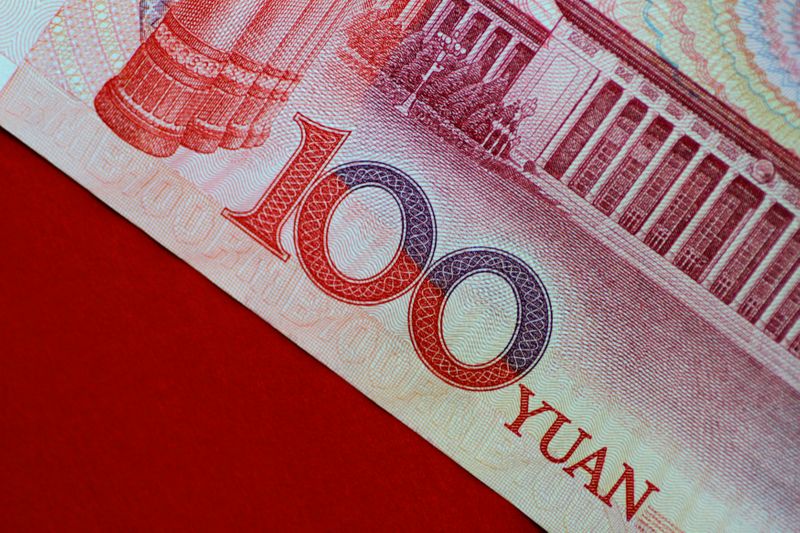By Vivek Mishra, Vuyani Ndaba and Gabriel Burin
BENGALURU/JOHANNESBURG/BUENOS AIRES (Reuters) - Emerging market currencies are expected to rise a bit further in coming months as a sliding U.S. dollar offsets domestic worries about large economic imbalances stemming from the coronavirus pandemic, a Reuters poll showed.
From a peak reached early in the year, the emerging markets currency index (MIEM00000CUS), heavily weighted toward China given the size of its economy, weakened over 7% to hit a 2020 low in late March.
It has since recovered 4% as confidence in the dollar wilted, worsened by strained U.S.-China relations, and as China's economy has recovered strongly, and much earlier than others that were and still are hard-hit by the coronavirus.
Most emerging market currencies polled for by Reuters July 31-Aug 5 were forecast to extend their recent gains, rising about 3% on average in 12 months. But most won't recoup even half their coronavirus-induced 2020 losses over the coming year.
"While valuations remain cheap and positioning is somewhat neutral, we think that the near-term balance of risks could be less supportive for a bullish stance," noted Ioana Zamfir, a strategist at Morgan Stanley (NYSE:MS), adding that most of what has been driving these currencies higher is "already in the price."
"Some of these risks include a more neutral USD, a pick-up in U.S.-China tension ahead of the U.S. election, still rising COVID-19 cases across EM and the potential for new outbreaks as we approach autumn."
The South African rand, Russian rouble, Chinese yuan, Brazilian real and the Indian rupee have recovered over 10%, 11%, 3%, 11% and 3%, respectively, against the dollar - the world's reserve currency - from this year's intraday lows.
Over 80% of FX strategists who answered an additional question, 31 of 38, said major emerging market currencies were either fairly valued or cheap versus the dollar. The remaining seven strategists said those were expensive.
The surge in coronavirus cases in several U.S. states and fears a push to re-open the economy was premature has weakened the greenback's traditional appeal. The dollar is forecast to extend its losing streak. [EUR/POLL]
However, nearly two-thirds of FX strategists who answered an additional question, 38 of 62, said the greenback's weakening trend would last less than a year. The remaining 24 said it would last for more than a year.
"While the dollar depreciated against all its G10 and the vast majority of EM currencies last month, we are of the view that the sell-off seems overdone," said Piotr Matys, senior EM FX strategist at Rabobank.
"Escalating geopolitical tensions between the US and China accompanied by rising risk of a second wave in Europe and Asia may provide the dollar with a much-needed support."
The Chinese yuan
China was the world's first major economy to declare a return to growth in the second quarter after a deep slump at the start of the year as lockdown restrictions were eased after the country reported fewer coronavirus cases.
"The CNY may gently perform strongly against the dollar in the near term on the stronger-than-expected China recovery," said MUFG's head of research Derek Halpenny.
"(But) the relationship between the two countries under Trump's administration continues to deteriorate. Depending on the political intensity, the market may seek refuge in the USD, which would weaken the CNY."
Surging coronavirus infections in other developing economies have dispelled any notion the region may be over the worst.
The Indian rupee
South Africa's rand

"The uneven nature of the (global economic) recovery will continue to trip up market sentiment, and so cause EM currency volatility, in particular reflected by the rand," wrote Investec chief economist Annabel Bishop.